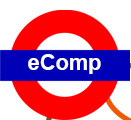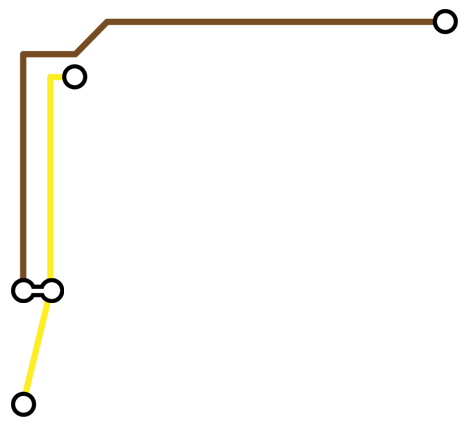Intro/Past Experience
In August of 2008, I entered the doors of the UNM English department as a novice TA with a year’s worth of teaching under my belt and several years’ experience tutoring. Slowly but surely, I began to see teaching as the balance to my scholarship—even though modernist poetry and composition studies may seem an odd couple. The department’s emphasis on writing as a process (much like the moderns I study), its focus on peer mentorship, and its willingness to make change based on grassroots efforts from new and veteran TAs offered me the opportunity to expand my teaching repertoire and experiment with innovative pedagogy that seemed right to me based on experience, even when I didn’t have the theoretical support to affirm my instincts. If you read Wanda Martin and Chuck Paine’s (2001) “Mentors, Models, and Agents of Change: Veteran TAs Preparing Teachers of Writing” in Preparing College Teachers of Writing, you will read from the perspectives of the two most influential directors under which I taught—Martin and Paine are both faculty members at UNM. My students, my teaching, and my professionalization as an academic all benefitted from their knowledge and enthusiasm for new perspectives.
Despite these efforts, however, I was never trained to teach online. Our program has long sought ways to help TAs collaborate on teaching in order to gather resources and lift some of the training weight off of a small and overworked composition faculty, but these strategies face serious challenges in execution. Teaching communities that share materials, perform classroom observations, or grade collaboratively are frequently encouraged, but hard to implement in a setting where full-time graduate students are teaching a wide range of material outside the scope of their research with the same teaching loads as assistant professors. Online instructors were required to attend an hour-long meeting at the beginning of each semester, but I had only one formal workshop on online pedagogy, which I found by chance outside our department and attended voluntarily. Workshops during new TA orientation are generally aimed at instructors working for the department for the very first time, and the composition pedagogy course I took when I arrived was overburdened with the task of supporting brand new instructors as they concurrently taught their first class. Finally, although our university’s online support office can provide workshops on the platform itself, they are not responsible for helping instructors develop subject-specific best practices in an online environment. Online writing pedagogy doesn’t have a place in any of these institutional environments because they are all responsible for a wealth of other important trainings, but instructors like myself have frequently been left to “go it alone” in a new and booming field.
As an IA
Within the eComp model, I spent a semester observing and being observed by a fellow Instructional Assistant (IA) and two lead instructors. We watched one another respond to student questions in the community Writers’ Lounge (where students can post general questions about the course and assignments), the weekly discussion boards, and within the multiple drafts of student projects (three total for every major project). The eComp classroom used the Writers’ Lounge to field general questions in a public format similar to f2f settings, but improved because the record lasts all semester. Lead instructors and IAs also contributed to discussion boards, interacting with students and one another in a collaborative teaching and learning environment. Although asynchronous, these continuous and recorded interactions provided a stream of feedback for the entire instructional team in terms of how best to serve student needs. Lead instructors modeled strong online pedagogy for the IAs and observed our feedback on student projects. They often used the IAs’ feedback and student feedback from peer reviews when grading projects to determine where a student went off track with their work, or where that student may have ignored valuable feedback from their peers and the IAs. During our team meetings, the faculty responded to our work as IAs and helped us refine our skills in responding to student work. IAs could implement suggestions made and the lead instructors could see how suggestions played out all within a few days of our discussion.
In their 2000 study, Karen Swan, Peter Shea, Eric Fredericksen, Alexandra Pickett, William Pelz, and Greg Maher argued that “[s]tudents who had high perceived levels of interaction with the instructor also had high levels of satisfaction with the course and reported higher levels of learning,” (p. 369) but I think this argument extends to course instructors as well. Peer teaching groups are no doubt an excellent resource for TAs new and old, but because course assignments are largely left to TA discretion in our program, it is rare to find TAs working on similar projects at the same time. I was able to experience the continued contact of a peer teaching group embedded directly into my course, and our team was able to continuously integrate peer feedback while observing how it worked within the course throughout the semester.
Moreover, I was able to cultivate some of the excitement and enthusiasm I was lacking as an instructor in my online courses. In an f2f classroom, I can connect to my students during our class time and during office hours, but in my previous experiences teaching online I felt like my students were disassociated from one another, me, and the institution. Even when replying to e-mails or participating in discussion boards, there was frequently a lag time between when students posted and when I could respond, or when I posted and they could respond. Working in eComp, however, the students had more opportunities to connect with either their instructors or the IAs. Although there were more students in each course, there were also four people waiting to answer questions in the Writers’ Lounge and at least two people waiting to respond to their posts online. Students could see instructor involvement and they could see their peers regularly interacting with instructors and IAs. In f2f classrooms, so many concurrent conversations would be chaos, but in eComp it created a buzz of activity necessary for the “interactivity” that is necessary for successful online courses (Montes et al., 2014; Yuan & Kim, 2014). I received more emails from students with questions about their work, my feedback, or the instructor’s feedback, than I did in the online courses I had previously taught. Students seemed more comfortable in approaching me for help, connecting through the online conferencing system, or visiting my campus office hours, much like they frequently do in f2f classes. As an instructor, this connection with my students keeps me excited about the courses I teach and the future courses I plan to teach.
Looking ForwardThe practical teaching tools I learned from my training in eComp taught me about efficiency and effectiveness in an online classroom and the value of what Louise Stoll and Karen Seashore (2007) defined as a “Professional Learning Community.” The kind of close mentorship eComp fosters as part of a required teaching load (as opposed to an outside mentorship requirement) would have been incredibly beneficial to me as a new TA finding my way in the department and, especially, teaching online. Many veteran faculty members are wary of online teaching and rely on the online teaching support department to design their courses for them; for TAs without much clout, this is not an option for graduate instructors trying to balance research and teaching obligations. It also means that the mentors many of us work with most directly in our dissertation/thesis committees often do not have much advice for online teaching. The lead instructors in eComp, however, had ample experience teaching online and working with several levels of instructors within a course. Likewise, this model has been the best training I have had to date in terms of instructor mentorship.
As a lead instructor in eComp courses, I am more aware of what questions I had as an IA and how to guide new IAs in my team to better serve our students. I tell new IAs not to worry so much about “getting it right,” as simply giving students choices and asking them to make rhetorical decisions when composing. I also emphasize their role as instigators as opposed to evaluators, and encourage them to pose questions or offer alternate perspectives when responding to discussion posts or reading journals. Like the lead instructors modeled for me, I teach IAs in my course how to incorporate multimodal feedback with screen capture software like Jing, and how to plan comments (encouragement and constructive critique) to fit within the five-minute time restriction. One of the IAs in a recent course was also a former student of mine, and it was an enlightening opportunity to watch him share the time-management and organization skills he had been learning during his undergraduate career with our students. His advice helped students reframe questions about “What to write?” in terms of how to create a writing process and budget time for extra feedback and revisions. Because I was mentored as an IA in a course flexible enough to respond to new ideas and suggestions from the entire instructional team, my own course was similarly designed and had room for this IA to create his own “helpful hints” guides and mini-lessons. Leading my own courses helped me understand that the collaborative relationship of the instructional team is intrinsic to our success as a team and the success of our students, and its achievement is mirrored in the unique ways IAs choose to provide supportive guidance to students within the course.
Professional learning communities are integral to supporting instructors at every point of their teaching career. As I near my degree completion and have more opportunities to teach literature, I am also teaching f2f courses more frequently. Nonetheless, the mentoring skills I learned as an IA in eComp continue to apply: I currently share course materials on our departmental course wikis, more frequently discuss course ideas and materials with peers, and invite other instructors to observe and guest lecture in my f2f courses. When a novice TA asked to guest teach in my later world literature class for her teaching practicum, I invited this instructor, an Egyptian national and native Arabic speaker, to teach Naguib Mahfouz’s “Zaabalawi.” The experience provided my students the opportunity to work with multiple versions of expertise during one class: a veteran instructor with little knowledge of Arabic or Egyptian culture, and a novice instructor with expertise in both Arabic and Egyptian culture. As a result, the guest instructor was confident and enthusiastic, and the students were able to explore a text with more support and more depth that might have otherwise required multiple class sessions to unpack in detail.
Working in the eComp model has also empowered me to pursue more opportunities to engage with the scholarship of learning and teaching. With the two lead instructors and my fellow IA, I presented on a panel at the 2014 Conference on College Composition and Communication and co-authored a forthcoming article for Computers and Composition on an assessment and course redesign of our eComp model. Collectively, these experiences made it possible for me to pursue and acquire a position in our university’s Center for Teaching Excellence where I currently lead workshops on effectively incorporating technology, like wikis or screen capture software, in f2f and online classrooms. Publication and employment outside of my subfield would have been difficult and unlikely without the my training in eComp, but both will make me a more marketable literature scholar, and have made me a better instructor in f2f and online classrooms.
When I was brought on as an IA for eComp, I saw the position as simply another way to build my teaching portfolio. With four years experience in the department teaching hybrid courses, online courses, and having assigned multimodal projects (before I knew there was a term for that), I felt like I brought a lot to the table. What I did not expect was to learn more about innovative online pedagogy and mentorship in one semester than I had in the eight previous semesters. The skills I learned as a veteran TA working as an IA were very much contingent upon the unique environment created by the experiences and goals of the other authors and myself; however, I think the valuable learning and mentoring environment could easily be recreated within our department and across university writing departments with large staffs of TAs teaching a wide range of formats.
























